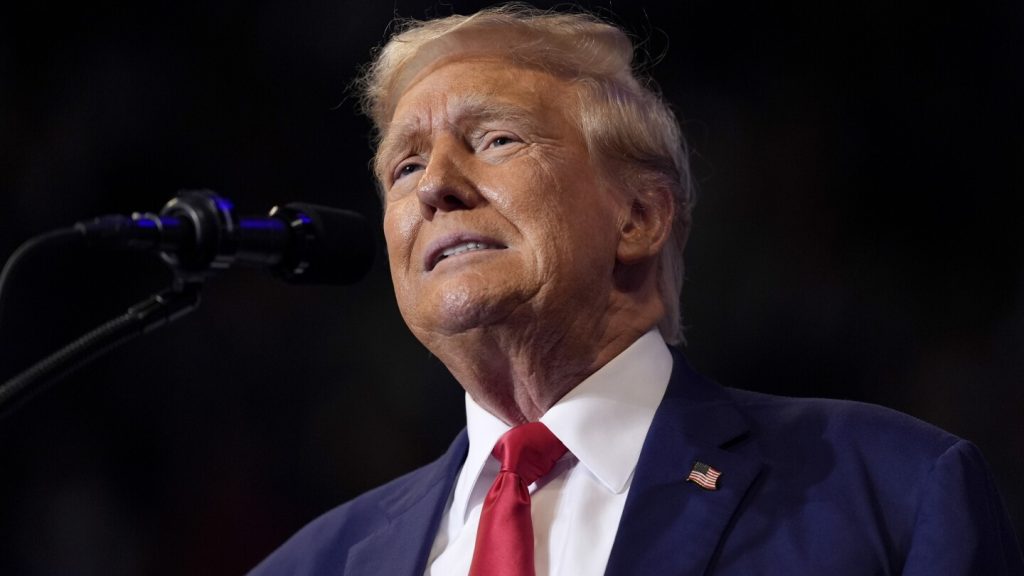Trump’s comments sparked immediate backlash from LGBTQ+ advocates and supporters, who criticized his use of language and misinformation about transgender athletes. Sarah Kate Ellis, the CEO of GLAAD, rebuked Trump’s remarks, stating that “transphobia is never acceptable” and calling on him to educate himself on the realities of transgender athletes. The controversy surrounding Khelif and Li stems from an ongoing debate about how to ensure fair competition in women’s sports while also respecting transgender athletes’ rights. Trump’s comments highlight the continuing divisiveness and lack of understanding around gender identity and inclusion in sports.
The International Olympic Committee (IOC) has guidelines in place for transgender athletes to compete in the gender with which they identify, provided they meet certain criteria related to hormone levels. However, the issue remains contentious, with some arguing that transgender athletes have unfair advantages due to their biological sex. The case of Khelif and Li highlights the complexities of this debate, with accusations of gender fraud and calls for increased scrutiny of transgender athletes. Trump’s inflammatory comments only serve to escalate tensions and perpetuate harmful stereotypes about transgender individuals.
Despite the backlash, Trump’s remarks resonate with many Americans who share his concerns about transgender athletes in women’s sports. A recent poll found that a majority of adults in the United States believe that transgender athletes should not be allowed to compete in sports that align with their gender identity. This sentiment is reflected in state-level legislation that seeks to restrict transgender athletes’ participation in women’s sports, citing concerns about fairness and competitive integrity. The debate over transgender athletes’ rights is likely to continue in the coming years, as more athletes come out and demand recognition and acceptance in the sports world.
Critics of Trump’s comments argue that they contribute to a hostile environment for transgender individuals and perpetuate harmful stereotypes that can fuel discrimination and violence. Transgender individuals already face significant challenges in accessing healthcare, employment, and social acceptance, and comments like Trump’s only serve to amplify these struggles. LGBTQ+ advocacy groups continue to push for greater visibility and inclusion of transgender individuals in all aspects of society, including sports, in order to foster understanding and acceptance. However, the road to equality remains fraught with obstacles and resistance from those who seek to deny transgender individuals their rights.
The controversy surrounding Khelif and Li is just one example of the broader challenges facing transgender athletes in sports today. As more athletes come out and demand recognition and acceptance in their respective sports, the issue of inclusivity and fairness will continue to be a hot-button topic. It is essential for policymakers, sports organizations, and the public to engage in thoughtful and informed discussions about how to create a more inclusive and equitable environment for all athletes, regardless of their gender identity. Trump’s comments may have sparked outrage, but they also provide an opportunity to have meaningful conversations about the complexities of gender identity and sports participation.
In conclusion, the debate over transgender athletes in sports is far from over, and Trump’s recent comments serve as a stark reminder of the challenges and divisions that exist in this arena. As society grapples with how to balance inclusion and fairness in sports, it is crucial to listen to the voices of transgender athletes and advocate for their rights and dignity. While progress has been made in recent years to support transgender individuals in sports, there is still much work to be done to ensure that all athletes are treated with respect and fairness. The case of Khelif and Li is just one chapter in a larger story of acceptance and recognition for transgender athletes, and it is up to all of us to continue pushing for equality and inclusivity in the world of sports.


